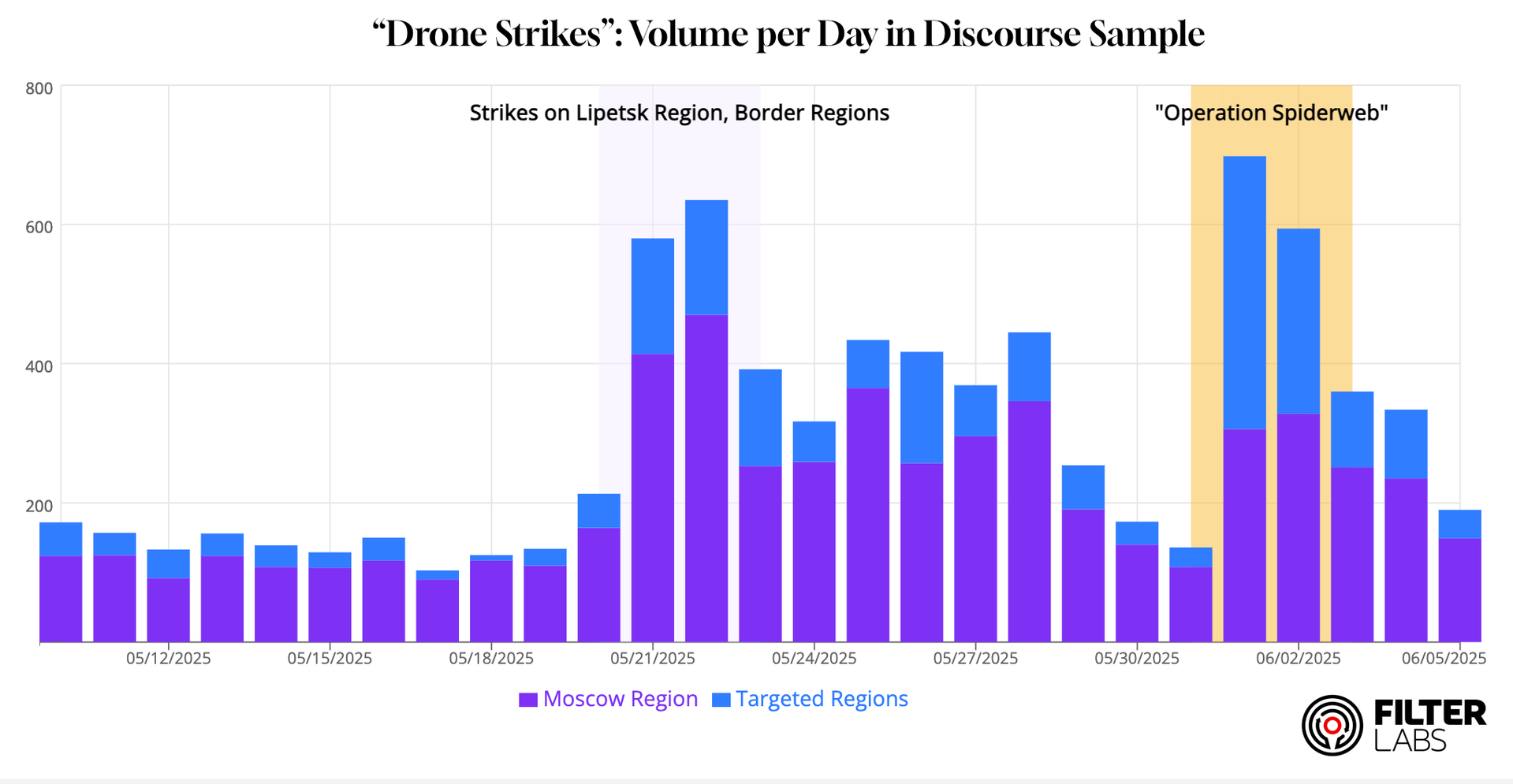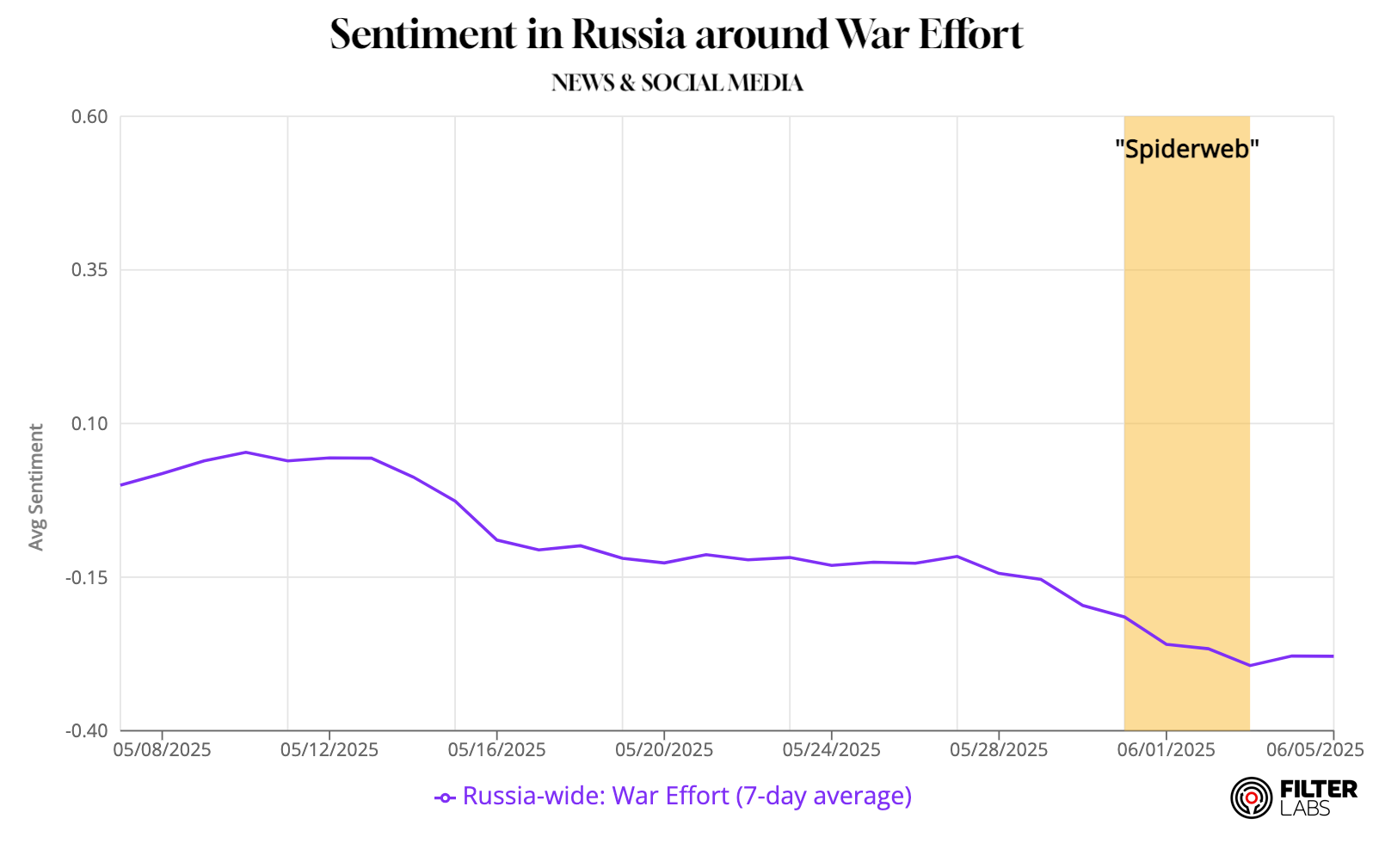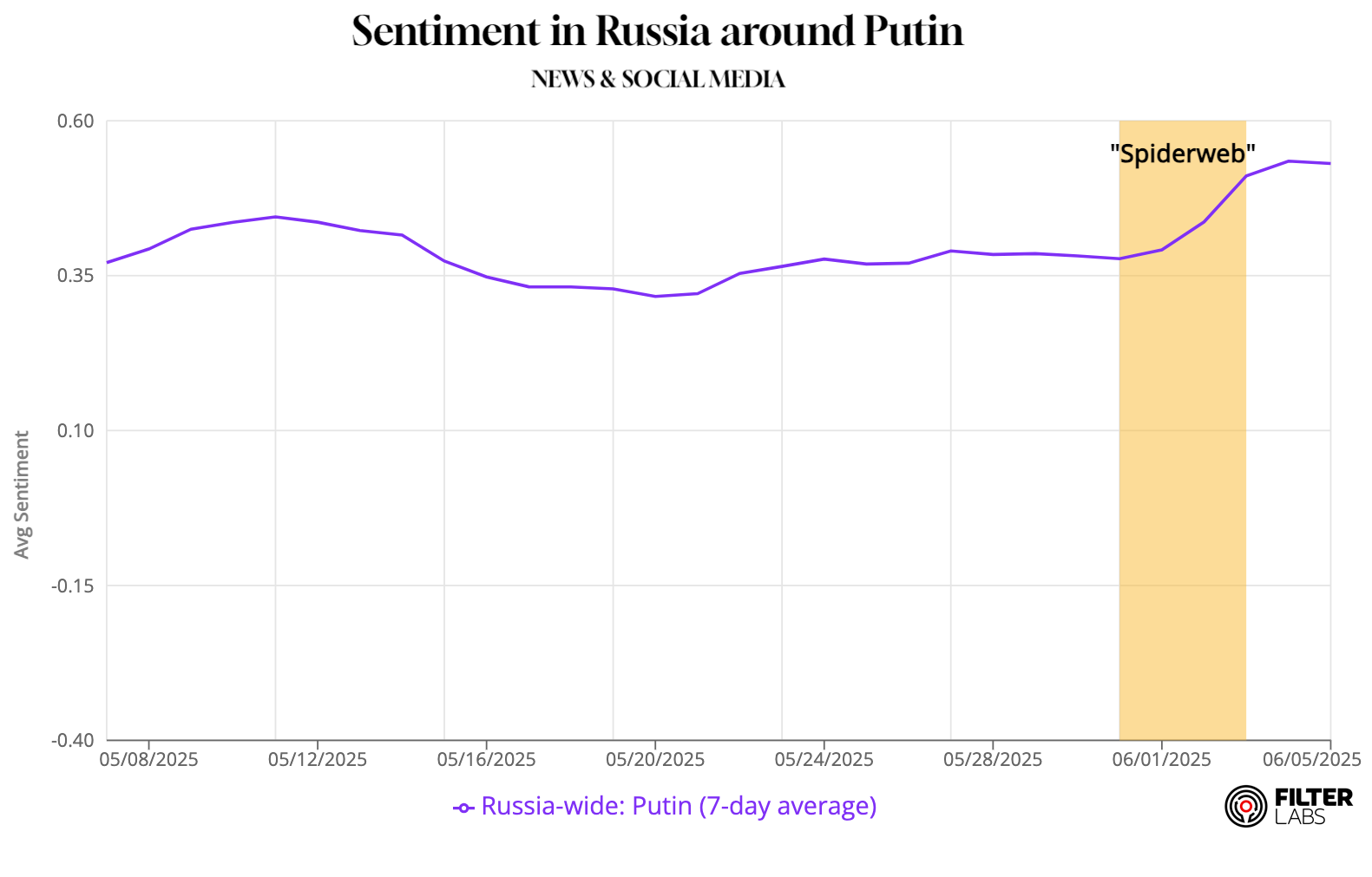Russia Reacts to Operation Spiderweb

After the audacious Operation Spiderweb—in which Ukrainian drones destroyed military aircraft across Russia—FilterLabs has turned its attention to the Russian response.
How would the Russian government and netizens react? And what might their reaction mean for the war and upcoming negotiations? Using Talisman, our data platform, we identified several major narratives and themes.
First, Operation Spiderweb was a major news story across Russia, but coverage was heaviest in the regions where the attacks took place. Compare, for example, the volume of daily mentions of drone strikes in a randomized sample of online discourse from Moscow and vicinity to the volume in a sample from the targeted regions:

Some difference is to be expected, but the comparatively low Moscow volumes at the time of the recent attacks could suggest an effort to downplay the embarrassing incident.
Some prominent themes we noticed in the two regions’ coverage:
- A “terrorist” attack. In the immediate aftermath of the attack, the Kremlin was uncharacteristically quiet. But after a few days, the Russian government settled on the familiar narrative that Operation Spiderweb was a “terrorist attack.”
- “Russia’s Pearl Harbor.” Regional news coverage was quicker to respond. The event was called “Russia’s Pearl Harbor,” and many stories emphasized Zelensky’s personal involvement.
- A massive failure. Across Russia there was one area of agreement on social media: the attack represented a massive failure of military intelligence. A Z-forum user asked, “Who issued [Artem Timofeyev, an alleged Ukrainian saboteur] a Russian passport, and who supervised the work of the FSB in Chelyabinsk? We don't care about Artem himself —there are thousands of people like him in the country now.”
Second, sentiment around the war is trending down:

Sentiment surrounding Russia's war effort was already declining, especially on social media, but Operation Spiderweb is unleashing a new wave of cynicism. Both prowar and antiwar Russian netizens agree that Project Spiderweb represents a colossal failure of Russia's security services.
The most vocal strata of online war supporters called for a more aggressive approach. One OK user (in Moscow) wrote: “This is the fault of those who did not bomb and destroy the bridges on the Dnieper …. The border must be closed and order must be restored within the country.”
Third, sentiment around Putin actually rose:

But looking more closely, he isn’t being told “molodets” (good job). Rather, pro-war netizens are concluding that Project Spiderweb is proof that the Kremlin is correct about this being a war of Russia vs. NATO. One OK user wrote: “Putin is right when he refers to what is happening in Ukraine as a proxy war against Russia.”
Fourth, Russians are split over how the attacks will affect the upcoming peace talks.
Some netizens argue the destruction of strategic nuclear bombers weakens Russia's hand, while others, including expert voices, believe that the war will continue on its current trajectory. Moscow-based expert Leonid Krutakov concludes that Operation Spiderweb won’t change the facts on the ground: “These attacks on airfields have not changed anything in the Russia-Ukraine relations and with regard to the special military operation.”
The bottom line:
Despite the Kremlin’s insistence that Operation Spiderweb was a “terrorist attack,” there is ample evidence that Russian netizens are seeing it differently. They’re asking why massive security failures like this keep happening. Talisman did not find netizens clamoring for compromise with Ukraine after the drone strikes, but few outside the Z-channels are currently enthusiastic about the war.
If anything, Project Spiderweb has made netizens even more weary, wondering how long things can stay the same.
Explore the Data in Talisman
Have questions of your own? Want more hyper-local insights into hard-to-reach places (like Russia) around the world? Check out the live data on our analytics platform, Talisman! All subscribers can check out live versions of the charts above; those with full-access subscriptions can also investigate the individual artifacts underlying it, and so much more.
If you don’t have a Talisman account yet, sign up now—a basic subscription is free!




